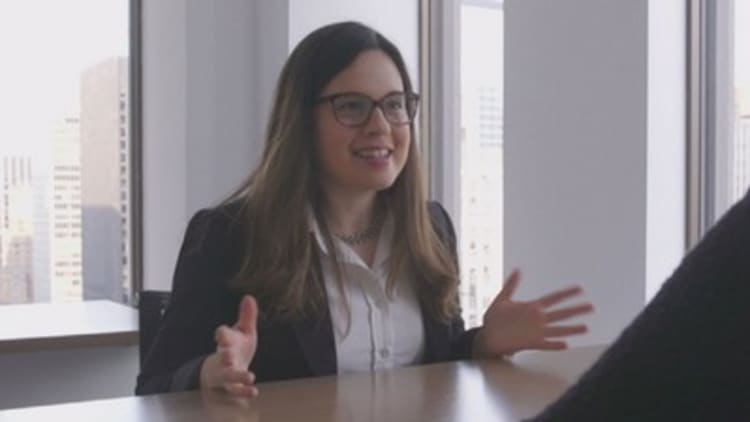When you're using a company's online portal to apply for a job, you'll likely be asked to attach both a resume and a cover letter. While you should always upload your resume, a cover letter might not be necessary.
"There's a historical convention of having that as an option," says Simon Taylor, longtime talent acquisition executive and former Disney recruiter, about these portals. But it's not a requirement.
In fact, Taylor himself would "generally advise against" writing one, he says. That's because you never really know who's reading it — if anyone at all. "In my experience," says Taylor, "most recruiters are not looking at cover letters because they simply don't have the time. But hiring managers might."
Here's his cover letter philosophy.
In the time you write it 'you could have applied to 15 jobs'
Because you never know if your cover letter might come into play for your prospective employer, Taylor suggests jobseekers consider a couple of things.
First, writing a cover letter is a lot of "mental work and emotional work." It takes significantly more effort to write one than it does to, say, tweak a resume. And that "can drain the tank," he says, and make it harder to continue applying in that moment.
DON'T MISS: The ultimate guide to acing your interview and landing your dream job
It's also a time-consuming endeavor. "You're going to spend two hours writing three cover letters," he says. "Maybe you could have applied to 15 jobs in that same timeframe."
The question you should be asking yourself when you sit down to apply for any job or series of jobs is "how can I get the most ROI from my effort as an applicant," he says. If you think writing a cover letter is going to help, do it.
Write one if you're 'fresh out of college'
There are a couple of scenarios in which Taylor would have candidates opt for a cover letter.
When someone is fresh out of college and "they don't have a lot on their resume" is one example, or when someone is making a pivot in their career and going from one industry to the next.
In those scenarios, a cover letter can "connect the dots between the different experiences that may not be evident to the hiring manager." It can give you an opportunity to demonstrate how your previous accomplishments apply to the role you're after when it isn't so clear.
When the president and CEO of the Academy of Television Arts and Sciences, Maury McIntyre, was looking for a chief of staff, for example, he got a resume from a woman who'd been teaching choreography at private schools. Her background didn't seem to fit the role, but she used her cover letter to illustrate, bullet by bullet, why her experience directly translated to what she'd be doing at the organization.
And she got the job.
DON'T MISS: Want to be smarter and more successful with your money, work & life? Sign up for our newsletter!
Want to land your dream job in 2024? Take CNBC's new online course How to Ace Your Job Interview to learn what hiring managers are really looking for, body language techniques, what to say and not to say, and the best way to talk about pay. Get started today and save 50% with discount code EARLYBIRD.
Check out:
Keep this line off your resume, says ex-Disney recruiter: 'There's zero benefit'
Ex-Google recruiter shares the No. 1 thing to do after applying for a job: 'Everyone fails' at it'



